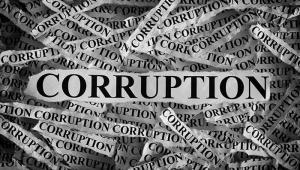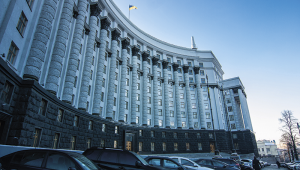The annual index, a benchmark for levels of corruption across the globe, found that 68% of 176 countries measured scored lower than 50 on a scale from 0 (perceived to be highly corrupt) to 100 (perceived to be very clean).
Transparency International said this showed how “massive and pervasive” public sector corruption is globally – and for the large part, it’s getting worse. More countries declined on the index than improved last year.
As citizens become increasingly aware of and affected by corruption, and feel their societies becoming more unequal, the transparency NGO said they turn to populist politicians who promise to break the cycle and bring about change.
This can be seen manifested in political developments across the world: from the election of new US president Donald Trump, who has promised to “drain the swamp” in Washington DC, to president Rodrigo Duterte in the Phillipines, who was also elected on an anti-corruption ticket.
Transparency International warned, however, that installing such leaders will likely only exacerbate the issues that saw them elected in the first place.
José Ugaz, chair of Transparency International, said populist politicians, often turn out to be autocratic, move to close down democracy, with “a disturbing pattern” of attempts to crack down on civil society, limit press freedom and weaken the independence of the judiciary.
“Instead of tackling crony capitalism, those leaders usually install even worse forms of corrupt systems,” he said.
Countries where leaders have followed this pattern, such as Hungary and Turkey, have seen their scores on the index drop at the same time.
Turkey’s score has fallen from 50 in 2013 to 41 today, after the election of president Recep Tayyip Erdoğan in 2014. The index was scored differently when Hungary’s prime minister Victor Orbán took office for the second time in 2010, but since 2012 the country’s score has fallen from 55 to 48.
Meanwhile, in Argentina, where a populist administration was ousted in elections in 2015, the score has improved by 4 points since, to 36.
Transparency International said that countries where governments are more open, transparent and easily held to account and there is freedom of the press, civil liberties and independent judiciaries tend to score better on the index.
This is evident in the 10 best performers of 2016: Denmark (90); New Zealand (90); Finland (89); Sweden (88); Switzerland (86); Norway (85); Singapore (84); the Netherlands (83); Canada (82); and Germany (81).
However Transparency International stressed that no country is immune, with such nations being vulnerable to closed-door deals, conflicts of interest, illicit finance and patchy law enforcement.
Neither are they immune to the rise of populist politicians. In the Netherlands, for example, the far-right Geert Wilders has a chance of winning this year’s election. The country’s score on the index fell from 87 in 2015 to 83 this year.
But it is countries in troubled regions, particularly the Middle East, that have seen the most dramatic declines. Qatar’s score plummeted by 10 points. Ugaz said the FIFA scandals, investigations into the country’s hosting of the 2022 world cup and reports of human rights abuses against migrant workers had “clearly” had an impact.
Syria, where corruption, poor governance and weak institutions have become the norm amid a devastating six-year conflict, has fallen to the bottom of the index, to 173rd place (scoring 13) from 127th in 2010.
It joins Somalia (10), which has been the worst performer for the past decade, South Sudan (11) and North Korea (12) in the bottom five.
In the index’s low-scoring countries, bribery, extortion and poor quality basic services that are starved as funds intended for them are siphoned off are a regular feature of daily life for citizens.
Grand corruption, where businesses and politicians collude to misappropriate billions of dollars from national economies, is also common at the bottom end of the index. In Brazil, for example, a series corruption scandals taking out the upper echelons of the political and business class pushed the country’s score down by five points in 2015, to 38.
But investigations and punishments for those involved have helped restore a sense that no one is above the law, bringing the 2016 score up to 40.













